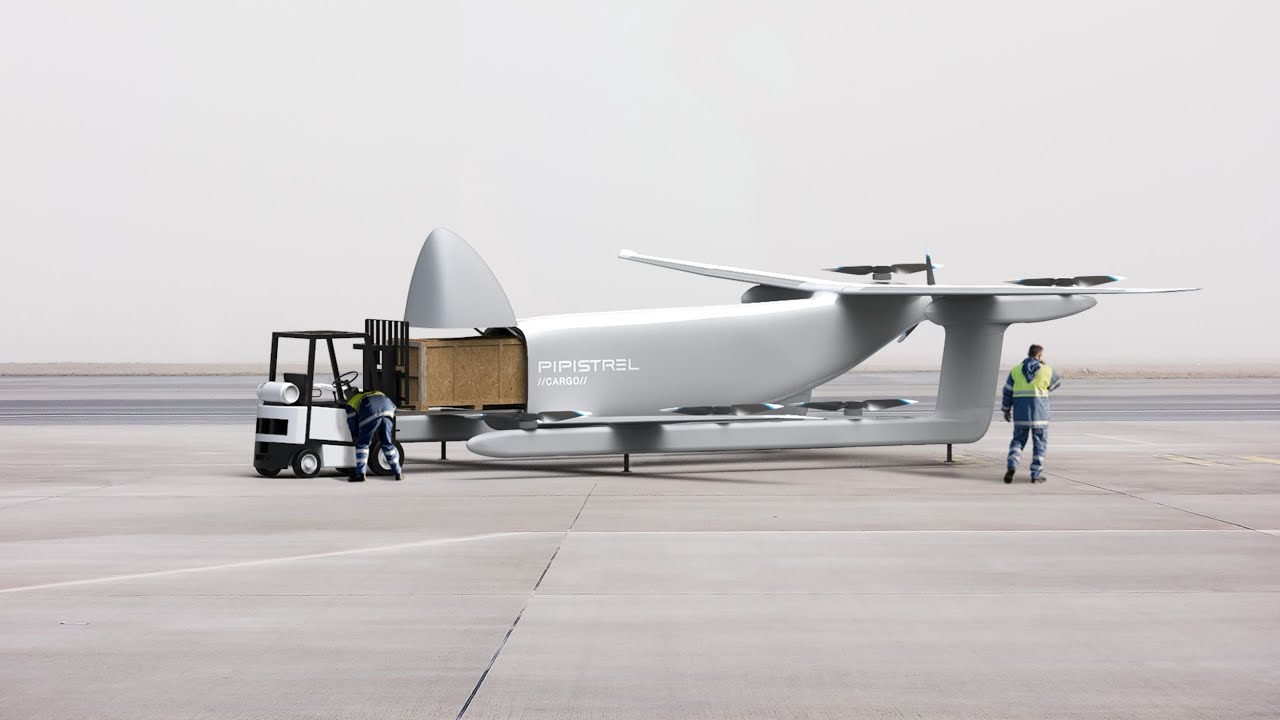
Pipistrel, the eVTOL company behind the Nuuva V300, is ready to accept orders on its “revolutionary long-range large-capacity heavy-weight autonomous eVTOL UAV for logistics and aerial cargo delivery,” says a company press release. The craft operates “10x more economically than today’s helicopters, requires no runways, and brings enhanced safety and reliability using type-certified electric engines.”
The press release states, “This one‑of‑a‑kind aircraft embodies our vision to disrupt aerial cargo transportation by commercialising the use of electrical vertical take-off and landing (eVTOL) vehicles.” It goes on to say, “The highly customisable autonomous aircraft can carry up to 460 kg, is easy and economical to operate, and offers the efficiency and reliability of electric powertrains.” Entry into service is planned for the second half of 2023.
Today, cargo is often delivered to global locations by helicopter, which while effective for hovering are less efficient in cruise flight, as they rely on their rotors to provide the necessary lift. Also, the complex flight mechanics result in many moving parts, requiring regular maintenance and inspection, increasing the costs of operation.
The Nuuva family, on the other hand, combines both the aeroplane and helicopter air cargo transportation principles. The unmanned eVTOL capability enables it to go “where no aeroplane is able to,” while its configuration allows the craft to operate at a fraction of the cost of a helicopter on a comparable mission.
The aircraft’s spacious cargo compartment accepts up to 3 Euro-pallets (EPAL), which are loaded by a regular forklift. The Nuuva V300 then flies a fully autonomous flight plan, controlled by a digital flight control system. Constant communication allows the ground operator to have ultimate oversight in case of changes, safety concerns or cancellation of the trip.
Ivo Boscarol Founder, owner and president of Pipistrel companies, CEO of Pipistrel d.o.o.
The report continues, “The Nuuva V300 takes-off and lands using already type-certified eight independent battery-powered Pipistrel E-811 electric engines. The complete system is safeguarded by the integrated health self‑monitoring system that alerts of any potential malfunction even before it occurs, increasing the reliability and safety. Nuuva V300’s batteries can be charged by simply plugging-in to Pipistrel’s SkyCharge station.”
It goes on to say, “A dependable and proven internal combustion engine in the aft fuselage, powers the aircraft in cruise flight, offering unbeatable fuel economy and low maintenance costs. A unique tandem-wing configuration with fly-by-wire control surfaces boosts the aerodynamic efficiency and reduces the landing footprint of the vehicle, while assuring a wide centre-of-gravity margin.”
The Nuuva V300 can be customised for a range of missions. For a longer one, the craft is “able to transport 50-kg payload for as far as 2,500 km,” and has the ability to take-off and land vertically from altitudes as high as 8,000 ft. At lower take-off altitudes and with shorter mission requirements, the payload “can be increased to up to 460 kg, beating the coveted 1,000 lb threshold.”
The other craft ready for orders is the smaller sibling of the Nuuva family, the V20, which shares a similar construction and advantages of the larger V300, but is designed as a lightweight cargo courier carrying payloads of up to 20 kg. The convenience of the V20 unlocks last-mile delivery missions. First customers will be able to take shipment in 2021.
Pipistrel has produced more than 2,200 aircraft to-date. The company was the “first-to-fly” an electric two-seater in 2007 and was the winner of the NASA Green Flight Challenge in 2011 with an electric four-seat aeroplane.
For visual presentation
https://www.youtube.com/watch?v=l-2O1_Wd06E
For more information



